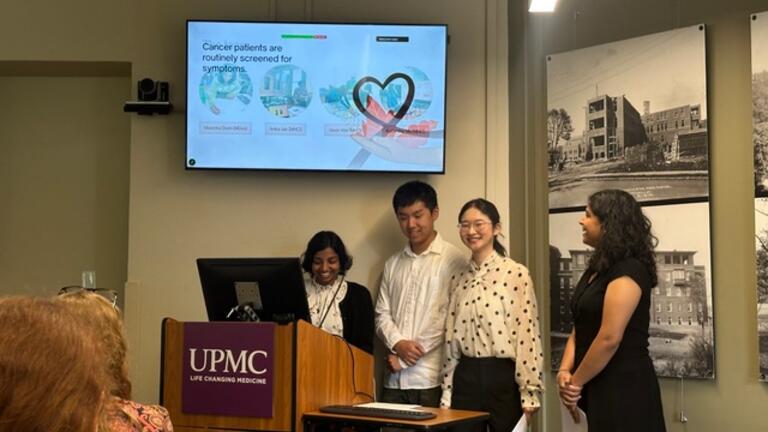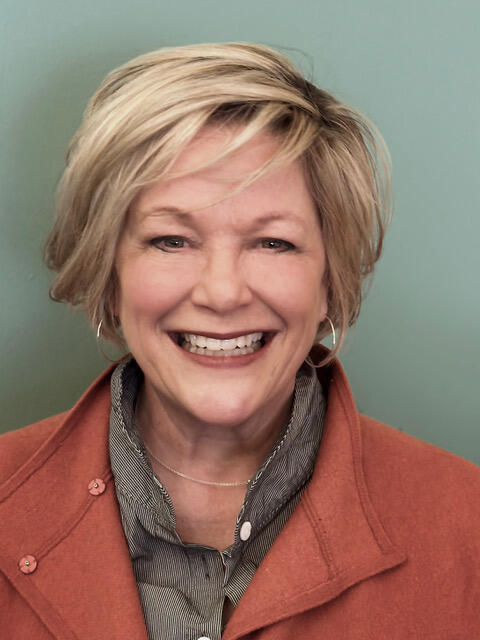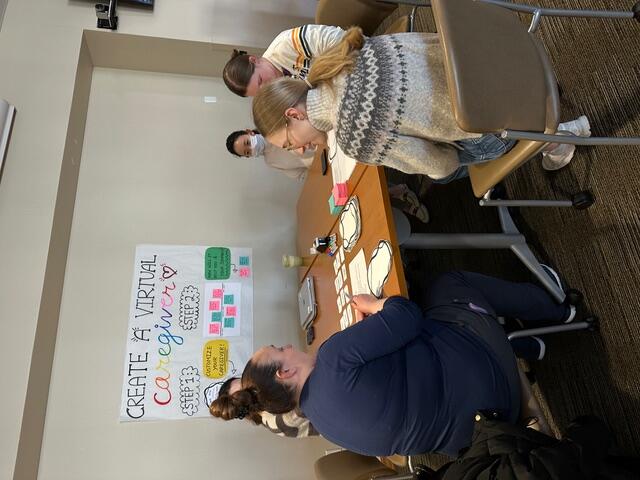Kristin Hughes on Designing with CARE

Kristin Hughes, a Professor at Carnegie Mellon University's School of Design, recently reflected on "Designing with CARE," a 15-week long project which tasked student teams with designing solutions for the complex world of gynecological oncology care coordination. The trajectory of this project began with Hughes' own personal battle with cancer and resulted in truly thought provoking solutions from Design students presented on site at UPMC Magee's Women's Hospital in Pittsburgh, PA.

In May 2022, I was diagnosed with a rare and aggressive cancer in my uterus called carcinosarcoma. No one is ever truly prepared to hear they have cancer, but nothing could have prepared me for what came next.
After months of chemotherapy and radiation, my doctor asked me a question many patients eventually hear: “How was your care experience with us?” It’s a well-meaning prompt, but if you’ve lived through cancer, you know the answer is never simple. I received excellent medical care, but my response went beyond gratitude. I shared my observations about how the healthcare system can falter, especially in the vulnerable spaces of diagnosis, treatment, and survivorship, where the system of care can become confusing, isolating, or overwhelming.
That conversation stayed with me. It planted a seed that has since grown into something much larger.
Two years later, I’m sitting in a conference room at UPMC Magee-Womens Hospital, marking the end of a semester unlike any other. I’ve co-taught a course alongside my cancer care team for the second consecutive year.
Together, we guide students in exploring new approaches to care coordination in gynecologic oncology—approaches rooted in empathy, co-creation, and systems thinking. Our students learned to navigate complexity, listen deeply, and design with—not for—those most affected. The class brings together design and medicine to imagine more compassionate, equitable, and responsive models of care.

Over fifteen weeks, students proposed ideas ranging from rethinking patient screenings to improving communication around diagnoses, supporting healthcare teams to normalize grief, and building tools for patient-caregiver coordination. Their work was bold, thoughtful, and honest. It illuminated often overlooked moments in the care journey with clarity, grace, and deep respect.
I left the semester with a renewed sense of purpose. These students aren’t just imagining better ways to care—they’re showing what becomes possible when we center the lived experiences of those most impacted. Their work is a reminder that care isn’t peripheral. It’s a form of infrastructure that shapes how we live, relate to one another, and who gets to belong within our systems.
At a time when fundamental rights and access to care are increasingly under threat, this work is more than inspiring—it’s necessary. We need compassionate and just models and systems that don’t just function but also respond. We also need to nurture the next generation of designers, clinicians, and community members willing to work together to ask harder questions and build better answers.
Thank you, Dr. Sarah Taylor, Dr. Grace Campbell, and Dr. Heidi Donovan, for your extraordinary character and vision. Also, thank you to the staff, patients, and caregivers from UPMC Magee's Women's Hospital and, most importantly, the students from Spring 2025 Designing with CARE: Co-Creating Solutions for Complex Care Coordination in Oncology for being fully present.